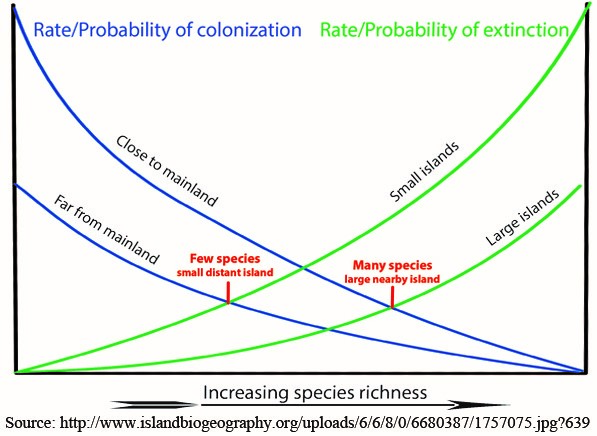


The theory of island biogeography is one of the classical theories of landscape ecology, and its main objective is to study species migration behavior among different ecological patches. The theory of island biogeography explains dynamically the relationship between species richness and isolation. It is believed that the species richness of the island depends on the migration of new species and the extinction of the original occupying species. The ebb and flow of these two processes leads to dynamic changes in species richness on islands. When the migration rate is equal to the extinction rate, the island species population reaches a dynamic equilibrium state, that is, the number of species is relatively stable, but the species composition is constantly changing and updating. In this state, the rate of species renewal is numerically equal to the rate of migration or extinction at that time, which is often referred to as species turnover. This theory is often used in urban planning to analyze ecological patches such as forests and wetlands.

Edited and translated by Zhang Yifei